Olga Godim's Blog, page 28
March 2, 2016
Naked or not
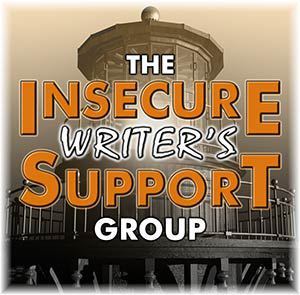 It’s the first Wednesday of the month again, time for a post for the Insecure Writer’s Support Group
It’s the first Wednesday of the month again, time for a post for the Insecure Writer’s Support Group
This Wednesday, I want to blog about art. I adore classical art and I love looking at beautiful pictures. Before the internet era, the only way to satisfy such a craving was visiting an art gallery or buying an album of reproductions. Now, with internet permeating all spheres of our lives, the art museums have come to us. There are thousands of paintings available online. That’s why I frequent image sharing sites like https://www.flickr.com/, http://tumblr.com, and https://www.pinterest.com.
Like everyone else, I have my likes and dislikes. I love Pre-Raphaelites but dislike post-impressionism. Abstract art leaves me cold but 18th century portraits fascinate me. It’s normal: everyone’s tastes are different. Recently though, I noticed one disturbing trend in my dislikes: I dislike paintings with naked figures in it. Classical paintings of naked Greek heroes or personages from Roman mythology have me uneasy. I don’t want to look at them. They are just as beautiful as the paintings with clothed figures, and many wonderful artists painted them, so why do I have this odd aversion to such images? Is something wrong with me?
I’m not religious. I have never been overly concerned about my own body, and I don’t think I’m a prude (am I?) Sports events or beach movies don’t bother me, but I never liked porn and I dislike sex scenes in romance novels. Is there anything in my psychological makeup that makes me so? The more important question is: does it hamper my writing – this strange inner prohibition of mine about naked bodies. Should I fight it? Would my writing be freer if I embraced nudity in art and life? Does it really matter?
How do you feel about nudity in art?


March 1, 2016
Blog post about book covers
My friend Mahala at 38 Caliber Reviews asked me to write a guest post for her blog series Authors We Like. I wrote what I think about book covers, the current trends and my personal preferences. I also added a giveaway of my urban fantasy short story collection Squirrel of Magic. I’d like to know what you think about my musings. Tell me in the comments, either here on on the site of the original posting.


February 16, 2016
Hannah’s Rugelach
 Yolanda Renee and Denise Covey of the WEP website came up with this delightful Valentine blog hop, but as long as I tried to write anything in the milieu I usually write in – fantasy or magic realism – the story eluded me. Only when I started thinking about my family, about the tragic reality of the Holocaust, I came up with this tale. I managed to keep the word count under 1,000 but I think the story could benefit from a couple hundred additional words. With a few more details and the longer dialog, it could’ve been subtler, more life-like. Still, it seems to serve the theme of love even as it is.
Yolanda Renee and Denise Covey of the WEP website came up with this delightful Valentine blog hop, but as long as I tried to write anything in the milieu I usually write in – fantasy or magic realism – the story eluded me. Only when I started thinking about my family, about the tragic reality of the Holocaust, I came up with this tale. I managed to keep the word count under 1,000 but I think the story could benefit from a couple hundred additional words. With a few more details and the longer dialog, it could’ve been subtler, more life-like. Still, it seems to serve the theme of love even as it is.
~~~~~~~~~~~~~~
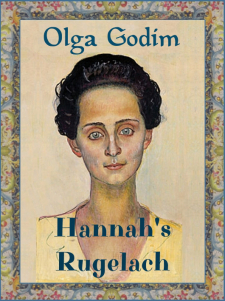
Art by Ferdinand Hodler
Hannah smiled as she entered the kitchen. For almost two years, ever since she arrived in America, she smiled every day. She smiled while measuring flour. She smiled while she rummaged in the pantry for the apricot jam. She smiled as she rolled the dough.
“Good morning, Hannah.” Mrs. Goldberg, the owner of the cafeteria, sailed into the kitchen.
“Good morning,” Hannah echoed. “The first batch of rugelach will be ready in half an hour.”
“Good. As soon as you put it in the oven, have some breakfast. I made coffee. You’re still too thin.”
“Thank you, Mrs. Goldberg.” Hannah kept smiling.
“I swear, your smile leaks into the cookies,” Mrs. Goldberg grumbled. “Must be a secret ingredient. Everyone wants to buy your rugelach.”
Hanna didn’t comment, although her lips twitched. She was glad people liked her baking. She felt exceedingly lucky to be among them, to have survived the horror of the camp, to get the American visa. Lucky that nobody touched her anymore, no dirty German hands or repulsive lips. No derisive sneers of her fellow prisoners either. Yes, she had done what she could to survive. She had been the camp slut. She endured the filth and the everyday rapes, while her barrack mates kept their dignity and perished. She had given up her pride in exchange for her life and she wasn’t sorry. Her pride or her body didn’t matter. What mattered were her soul and her grandmother’s baking recipes, the rugelach recipes that made everyone coming to the cafeteria happy.
Hannah shook off her gloom, pulled the last batch out of the oven, and went to the dining room to fill the glass domes behind the counter with fresh rugelach.
“Miss, could I have a refill of coffee and a blueberry rugelach,” a man at the corner table asked. Dressed in an expensive suit, with his hair thinning despite his relative youth, he looked like a lawyer or doctor. He also looked a bit like Rafe, her sweetheart before the war. Rafe adored her rugelach too.
“Of course, sir.” Hannah smiled at him and picked up his cup.
Suddenly, he gasped. “Hannah?”
Still holding his empty cup, she peered at him. Oh, no! A cold fist squeezed her heart. He didn’t look like Rafe. He was Rafe. Her hands started shaking. Before she dropped the cup, she lowered it carefully on the table.
“Rafe?” she whispered.
“You’re alive. I looked for you after the war. I wrote tons of letters but I couldn’t find you. Hannah, beloved.” He surged to his feet, overturning a chair in his haste to get to her, and opened his arms wide.
Wretched, Hannah backed away, her palms out, warding him off. “Rafe, no.” Her mouth felt dry, and her head spun. She didn’t have words except for his precious name but she knew she couldn’t allow him to touch her. Frantically, she shook her head and retreated towards the kitchen.
“Hannah, wait. What’s wrong?” He caught her arm before she could escape. “Hannah, talk to me. Why are you running? I missed you so much.” Still holding her arm, he steered her into the kitchen. “I never stopped loving you. I searched and searched—”
“I can’t, Rafe,” she interrupted miserably. “We’re different people now. We were very young when we kissed and made promises. Your family left. Mine didn’t. They’re all dead. I spent two years in that terrible camp. I survived, but the price was high.”
“I know. I’m a doctor. I have patients who survived the camps. I’ll do all I can to help you. Don’t push me away. If I knew what this war would bring, I’d never have left you behind. I didn’t know. I was young and stupid, but life granted us a second chance. Please, let’s try again.”
“I can’t,” she repeated.
“Are you married?”
She shook her head.
“Then why? I’m not married either. I’ve met many women, but each was lacking compared to you.”
What could she say? In the camp, she often shut her eyes and imagined his sweet face, while the German guards defiled her body. He was her refuge, her shining star in the end of the dark and fetid tunnel. Her hope that he was alive had kept her clinging to life too. But she was soiled for him. She had been immured in slime for two endless years. She could never wash the muck off. He didn’t deserve the Nazis’ leftovers.
She closed her eyes and told him the truth. At some point in her recital, his hand fell away from her arm. Of course, he was disgusted. Expecting to see his retreating back, she lifted her eyelids.
He stood facing her, his eyes full of tears. “Hannah,” he said. “I have been coming to this cafe for the last two years, ever since one of my colleagues mentioned your rugelach. I love them. Every bite reminded me of you. I always loved your rugelach, remember? I should’ve known it was you. How come I didn’t know? It must be fate.”
She was mute, her throat closed.
He kept on talking. “What happened in the camp was… not about us, Hannah. It was… it is a war wound. You’re wounded, but I’m a doctor. I treat wounds. Let me treat yours. Let me help you heal. Please. I love you. And I know you love me too. You said it yourself: thinking of me let you survive.”
Did she say that? Yes, she did.
He smiled gently—the smile she remembered so well. “You can teach me to bake rugelach.”
“No!” Hannah blurted. “You tried once and ruined the batch.” She shivered. “It might take a long time to heal this wound.”
“As long as for me to learn baking?”
He opened his arms again, and this time, Hannah accepted his embrace. Maybe she could teach him to bake after all.
~~~~~~~~~~~~~~~~~~
Word count: 985; full critique acceptable


February 3, 2016
Lamentations of an upset writer
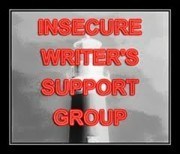 It’s the first Wednesday of the month again, time for a post for the Insecure Writer’s Support Group
It’s the first Wednesday of the month again, time for a post for the Insecure Writer’s Support Group
~~~~~~~~~~~~~~
Recently, I read a short story collection Word Puppets by Mary Robinette Kowal. The writing quality of this collection was high, hence my rating – 4 stars. The book made a lasting impression on me, but…
My joy level while reading it was about zero. I disliked it. The book was too dark, most stories too hopeless. They made my stomach ache. This book made me hate myself as a writer, made my self-esteem, not too high to begin with, plummet even lower.
The reason for that is the way the author builds her stories. They are not about what happened to the protagonists, nor about the events of the plot. Instead, they are splashes of emotions centered on the characters’ choices and decisions. And most of those emotions are negative. Gloom. Regret. Anguish. Hatred. Despair. Envy. Grief. In many stories, the heroes are damaged, physically or mentally, and their damage affect their actions in a twisted way.
It hurt me to read those stories. I finished the book only because I got it from NetGalley and I was expected to write a review.
When I write my own stories, I don’t want my readers hurt. I want them entertained, so I consciously stay away from deep, dark emotions. I try to make my stories as light as I can. I often employ subtle humor and emphasize the causality of events that compile the plot. But while Kowal got all her stories published in top genre magazines, while they won Hugos and Hugo nominations, I haven’t been able to place even one story in any magazine for the last year and a half.
I do not feel envy. No, I’m glad Kowal got her success: she deserves it. What I feel is sadness. Obviously, I don’t understand what people want to read. That’s why no editor wants my stories. Why do I keep writing them then? Why do I keep submitting? I think I should stop, and that decision is as painful as Kowal’s best stories.


January 6, 2016
I dream a dream
 It’s the first Wednesday of the month again, time for a post for the Insecure Writer’s Support Group
It’s the first Wednesday of the month again, time for a post for the Insecure Writer’s Support Group
I dream a dream. Right. We all do. Many writers dream of their books being adopted for Hollywood movies. Others want to appear on TV in some popular talk show (Oprah, anyone?) My dream is different. I want my novel(s) to become animated features. I want to see my characters drawn as beautiful as only an artist animator could make them. Studio Ghilbi would be my top choice, but I would settle for Disney.
Of course, I have to admit that my dreams never come true. That’s why I’m a writer. I dream a dream – and then I write it down, and it becomes a story. All my stories started from daydreams, only I never make myself a protagonist. I make my characters much more interesting than myself. I make them reach for their dreams, overcome all obstacles, and succeed against all odds.
Perhaps I should write a story about a writer who wants to see her stories as anime movies. She would succeed, I know. All my heroes do. Perhaps I should learn from her…


December 22, 2015
My lovely badge
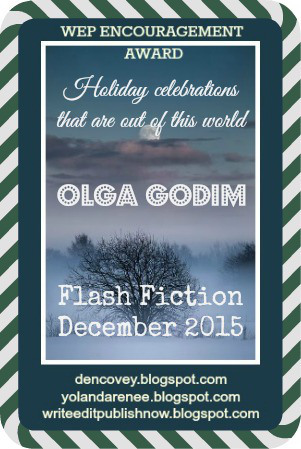 A few days ago, I participated in a WEP Challenge Holiday Celebrations Out of This World and wrote a flash fiction sci-fi story about New Year on a spaceship. I got the WEP Encouragement Award for my story and a lovely badge.
A few days ago, I participated in a WEP Challenge Holiday Celebrations Out of This World and wrote a flash fiction sci-fi story about New Year on a spaceship. I got the WEP Encouragement Award for my story and a lovely badge.
Here is my winning story, Blue Santa.
BTW: WEP is a website that offers writing challenges every couple months. It is run by two lovely ladies, Denise Covey and Yolanda Renee, both writers of boundless imagination. Thank you, Denise and Yolanda, for challenging all of us to write out of our comfort zone.


December 16, 2015
Blue Santa
 Yolanda Renee and Denise Covey of the WEP website came out with a fascinating challenge for the winter holidays: Holiday celebrations out of this world. I was so excited about the project, a science fiction story about New Year in space, the story flowed out of me. Thank you, ladies, for the intriguing prompt. It spurred my imagination.
Yolanda Renee and Denise Covey of the WEP website came out with a fascinating challenge for the winter holidays: Holiday celebrations out of this world. I was so excited about the project, a science fiction story about New Year in space, the story flowed out of me. Thank you, ladies, for the intriguing prompt. It spurred my imagination.
~~~~~~~~~~~~~~~~~~
“There’s an emergency on Nibelung Space Station,” the captain said. “Their power collectors are malfunctioning. They’re losing power. They need to evacuate the station for a few days, to make repairs. It’s getting mighty cold in there. More than a million people live on that station. They are asking every ship in the vicinity to accept refugees for a few days. Our orders are to fly to the station and take in six hundred people.”
“Six hundred!” Lyd-Co glanced around the briefing room. Every officer seemed as stunned as he was. “We have fifty-seven crew, including you, Captain. We are a small ship. We can’t possibly have six hundred extra sleeping places.”
“We can,” the captain said. “All the crew cabins will be vacated—we’ll sleep in the gym. The mess hall can fit fifty. The infirmary is empty—another twenty or more. The shuttle bays—we’ll have the shuttles leashed outside. We’re having the mattresses and blankets delivered.”
“Aye, sir. What do you want me to do?”
“Be my liaison. Assign quarters. Answer questions. Sort out squabbles. They’ll have kids.” The captain winced. “Maybe pets.”
“Pets? I’m not human, Captain, and this is a human station.”
“You’re my first officer,” the captain said sharply. “Tomorrow night is human New Year’s Eve. A big holiday. Let’s make it as painless as possible for the refugees.”
“Aye, sir, a holiday,” Lyd-Co repeated, his cranial antennas pulsating in distress. “With pets. I’m allergic to human pets. My antennas itch.”
“Shut up, Lyd-Co,” the captain said tiredly. “Take antihistamines and go do your job.”
“Aye, sir.” Lyd-Co went. Behind his back, the others bombarded the captain with questions about waste disposal, water supply, food preparation, and air recycling. Pets, he thought. And children. He hadn’t signed up to the Federation Fleet to babysit either.
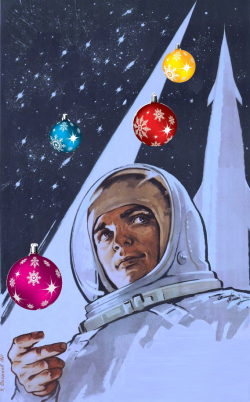 The embarkation went surprisingly smoothly. The subdued refugees followed his directions without demur, despite his blue skin. A least most of them did. He was able to deal with the few troublemakers with a minimum of fuss. By the next morning, nobody in the crew had slept for more than three hours, he hadn’t slept at all, but the refugees seemed settled and content. The noise on the ship rose to a deafening level, and gaudy plastic ornaments appeared randomly along the previously pristine walls of the ship.
The embarkation went surprisingly smoothly. The subdued refugees followed his directions without demur, despite his blue skin. A least most of them did. He was able to deal with the few troublemakers with a minimum of fuss. By the next morning, nobody in the crew had slept for more than three hours, he hadn’t slept at all, but the refugees seemed settled and content. The noise on the ship rose to a deafening level, and gaudy plastic ornaments appeared randomly along the previously pristine walls of the ship.
Lyd-Co ordered video screens installed in various areas of the ship for the New Year programs. The cook baked and distributed cookies. The head navigator performed an impromptu concert; he could play guitar and sing. Someone organized a video game competition for teenagers, and they crowded around the game consoles. Someone else started a daycare. The owners of two pets—a furry dog and a Vergacian dragon—agreed to keep their creatures sedated for the duration of their stay.
By four in the afternoon, Lyd-Co couldn’t keep his eyes open any longer. He needed to sleep for a few hours. He sat heavily on his bedroll but before he took off his boots, a frantic young woman rushed into the gym, an upset soldier hovering behind her.
“Sir! My son disappeared. I can’t find him. I looked everywhere. Please.”
Regretfully, Lyd-Co climbed back to his feet. “How old is you son?”
“Four.” She sobbed. “He went looking for Santa.”
“Looking for what?”
“We’re from Earth. We have this…” She sniffed convulsively. “…this fantastic being, Santa Clause. Every New Year Eve, he brings gifts to children. My son wanted to be sure that even after we immigrated to the station, Santa could still find him. I was busy, so he went searching. He said something about it before her disappeared, but I didn’t pay attention. I’m so sorry.”
“Right,” Lyd-Co said. “Don’t worry. He can’t be far. It’s a small ship. What is your son’s name?”
“Tom.” Her voice wobbled.
“Let’s give Tom his Santa.” Lyd-Co led the way to the bridge. He explained the situation to the captain and said into the loud speakers, projecting his announcement throughout the ship: “This is a message for Tom, four years old. Santa is waiting for him on the bridge.” He repeated the message several times.
“Do you have his gift, the one Santa is supposed to deliver?” he asked the mother.
She nodded jerkily.
“Bring it here.”
She ran out, returning with a big box wrapped in garish red and white paper. Fifteen minutes later, a guard at the door ushered in a small boy with curly blond hair. The boy looked around, spotted his mother, and marched towards her.
“Santa is not here,” he said accusingly.
“I’m Santa.” Lyd-Co offered the bright box to the boy.
Tom took the box and frowned. “You don’t look like Santa. You have blue skin. And no beard. And horns.”
His mother started to apologize, but Lyd-Co stopped her with a gesture. “I have antennas,” he corrected. “You see, Santa is not one man. It’s a job. In a place where you lived before, the man doing the job had white skin and a beard. Here, Santa is blue with antennas.” He wiggled his right antenna for emphasis.
“Oh,” Tom said, eyeing Lyd-Co’s antennas with interest. “That’s okay.” He smiled and tugged his mother out of the bridge, the box safely clutched in his little hands.
“Thank you,” the mother mouthed. The door hissed shut behind them.
“Hey, Santa, did you bring me a gift too,” the chief engineer asked with a grin.
“Congratulations on your new job, Blue Santa.” The captain didn’t even try to restrain his smirk.
With twitching lips, Lyd-Co stomped out. He was so tired, his antennas had shrunk to half their normal size. He needed to find out everything about this Earthen Santa. But before that, he needed sleep.
~~~~~~~~~~~~~~~~~~
Word count: 960; FCA (Full Critique Acceptable)


December 2, 2015
Lessons, lessons…
 It’s the first Wednesday of the month again, time for a post for the Insecure Writer’s Support Group
It’s the first Wednesday of the month again, time for a post for the Insecure Writer’s Support Group
Sometimes, the best writing lesson in the world propels my insecurities forward, because I should’ve known it, right? I did know it. It’s such a simple, basic lesson. Why didn’t I use it in my WIP?
I’ve been writing for over ten years. I have a dozen short stories and three novels published, and the number of my published newspaper articles is climbing towards 300, not counting self-publishing, so why do I sometimes still feel like a first grader?
Let me explain. I’m a subscriber to Jennifer Crusie’s blog ArghInc. Crusie is one of my favorite writers; I adore her books and I love her blog. When she started another blog, Writing Romance, specifically for writing lessons in romance genre, of course I subscribed to it. The lessons are great, concise and expressive, with Crusie’s typical dry wit, but every time a new lesson comes up on the blog, I think: why don’t I already employ this in my own writing? What she says is so obvious, almost common sense. Why do I still struggle with the concept in my current story?
 One of the lessons was about conflict and characters. I read it and I thought: that’s why my story doesn’t work. I have to apply this particular lesson, find out what one of my characters wants, and who/what is standing in his way, but instead, I approached my story the same way I always do: intuitively, playing the whole tale in my mind like a movie for one and relishing the fruits of my imagination. Of course, it didn’t work. Now that I’m applying this lesson, the story started to shape up, but why didn’t I do it before? The lesson is not anything new. I was aware of it. Why didn’t I use it?
One of the lessons was about conflict and characters. I read it and I thought: that’s why my story doesn’t work. I have to apply this particular lesson, find out what one of my characters wants, and who/what is standing in his way, but instead, I approached my story the same way I always do: intuitively, playing the whole tale in my mind like a movie for one and relishing the fruits of my imagination. Of course, it didn’t work. Now that I’m applying this lesson, the story started to shape up, but why didn’t I do it before? The lesson is not anything new. I was aware of it. Why didn’t I use it?
~~~~~~~~~~~~~~~~~~~
Does it happen to you? You know the theory but for some reason you don’t utilize it in your writing practice, until a clever teacher comes along and prods you into action?


November 4, 2015
The name fits, but the timing doesn’t
 It’s the first Wednesday of the month again, time for a post for the Insecure Writer’s Support Group.
It’s the first Wednesday of the month again, time for a post for the Insecure Writer’s Support Group.
I’m in mourning. They killed my hero’s name!
No, nobody died, but in the novella I’m currently working on, I wanted to name my hero Cedric. I like the name. The story takes place during Regency, and I think I read one or two Regency novels with a male character named Cedric, so I didn’t worry. Then I read this post from Interesting Literature. [] They write that the name Cedric only became popular after 1819:
“The name Cedric has its origins in Sir Walter Scott’s cavalier attitude to Anglo-Saxon. When researching for his classic novel Ivanhoe (1819), set during the twelfth century and featuring the character of Robin Hood, Scott came across the genuine Saxon name Cerdic and transposed the third and fourth letters. Thus Cedric was born.”
Imagine my frustration. How do I name my character now? Cedric was my final choice; I’ve already tried and discarded several other names for him. None fit the guy better than Cedric, but I can’t use the name that wasn’t used at the time of the novel. That would contradict historical accuracy. Talk about insecurities.
The only good thing that came out of this fiasco is that I read their post before I did any serious writing on the novella, before I posted even the first chapter on Wattpad for anyone to see. At least, nobody would know about my possible blunder now. I’ve been warned in time. Maybe it was a blessing in disguise.
I need a name for my male protagonist, pronto. He is a viscount with an independent mind and a caustic tongue, in a bit of a bind with the high society. He is not imbued with an abundance of tact and doesn’t suffer fools either. Help, please. I need a name.


November 1, 2015
Interview with my heroine
My heroine Eriale, the protagonist of Almost Adept, was interviewed recently on Champagne Books Blog. She talked about her magic … mostly. She also talked about her childhood, her world, and her ambitions. She was pretty open with the interviewer. Even I learned something about her I didn’t know before.





